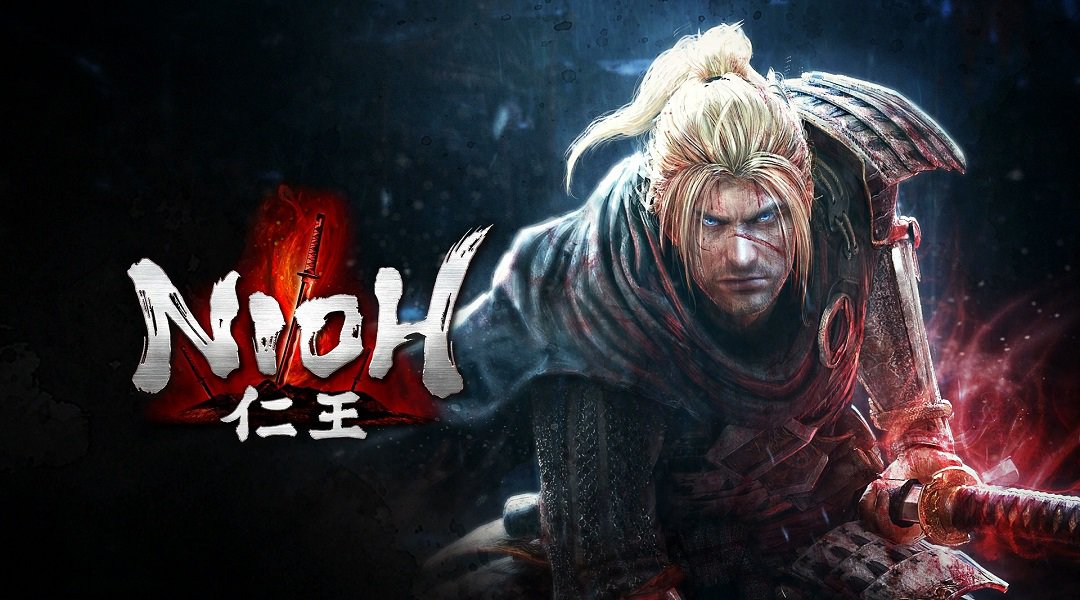
Nioh Review
By Dalton Cooper 05 February 2017
Nioh combines the stiff challenge of Dark Souls, the atmosphere of Onimusha, and the loot farming of Diablo to create an intense experience that’s hard to put down.
Since lead developer Tomonobu Itagaki parted ways with Team Ninja in 2008, the studio has struggled to live up to its reputation of delivering visually impressive games with engaging action. After a string of disappointing titles, like the polarizing Metroid: Other M and Ninja Gaiden 3, fans have been waiting for a game on par with the classics that defined the developer in the past. Luckily for Team Ninja fans, the wait for another landmark game in the vein of Dead or Alive and Ninja Gaiden is over: Nioh doesn’t just live up to Team Ninja’s past games, it raises the bar.
Nioh is the story of William Adams, a Westerner who travels to feudal Japan during the tumultuous Sengoku period in pursuit of the evil “Kelley,” and ends up in the middle of the “Warring States” conflict. In Japan, William is forced to do battle with soldiers armed with an assortment of deadly melee weapons, crossbows, and rifles, along with grotesque demons known as the yokai. The story is fairly thin and little more than an excuse to have players cut their way through large numbers of enemies, but it serves its purpose and delivers some exciting cut-scenes.
Nioh‘s battles are heavily inspired by Dark Souls, and should be familiar to anyone that has played From Software’s notoriously difficult franchise. Like Dark Souls, battles in Nioh often boil down to memorizing enemy attack patterns, striking when a window of opportunity opens, and then rolling out of the way to avoid taking damage.

Dark Souls veterans will find a few other recognizable features in Nioh. For example, if William dies, players have to return to his grave if they want to regain their unspent XP. To save the game and restore health, players need to pray at special shrines, which function almost exactly like the bonfires from Dark Souls. It’s also possible to summon online co-op partners to help out if the game is proving to be too difficult.
Players can also encounter graves of other players when connected to Nioh‘s online servers like in Dark Souls, though the graves function a bit differently. Unlike Dark Souls where players can watch a replay of how that particular player bit the dust, the graves in Nioh can be activated to let players fight an AI version of the person that died there. Nioh‘s graves can be found offline as well, with the game generating its own special enemies for solo players to fight.
Even though Nioh has a lot in common with Dark Souls, though, it shouldn’t be mistaken as a simple clone of From Software’s franchise. On the contrary, Nioh has plenty of original ideas to give it its own identity, like a deeper, more involved combat system that rewards players that are skilled enough to break away from the basic Dark Souls formula of hitting enemies and rolling to safety.
Nioh incorporates two specific features that give its combat more depth: the Ki Pulse and stances. The Ki Pulse is tied to the Ki meter, which functions like a standard stamina bar. However, the twist is that players can regain some spent Ki with a well-timed press of the R1 button after landing an attack, not unlike active reloading from Gears of War. Players that are especially adept at this move will be able to play Nioh much more aggressively, and will discover that the combat is deceptively deep.

Stances, meanwhile, influence the manner in which William strikes with a weapon, his ability to defend himself, and how fast he is able to attack enemies. Players are able to quickly switch between different stances and weapons, which allows them to make tactical decisions on the fly.
Stances and the Ki Pulse may seem like small tweaks, but they go a long way in helping Nioh‘s combat feel deeper than the games that inspired it. Furthermore, these systems demand players master them before they can be used effectively, and when players have finally mastered swapping between stances and utilizing the Ki Pulse, it’s incredibly rewarding.
Experimenting with different stances and weapons is key to success in Nioh, and rest assured, there’s no shortage of weapons for players to collect in the game. Borrowing a few pages from the Diablo playbook, Nioh showers players with loot. New weapons and armor constantly fall from slain enemies and are stored away in treasure chests.
By letting players farm for loot, Nioh manages to sidestep the frustration that sometimes serves as a barrier for players when it comes to Dark Souls-style games, where loot drops are generally much rarer. If there is a stretch of the game that players find particularly challenging, they can spend time grinding for better gear and try to tackle it later on. Grinding for gear and XP may sound monotonous to some, but since Nioh‘s combat is so engaging, players can spend hours fighting the same few enemies without getting bored.

Nioh‘s excellent level design also keeps the game interesting, even when players are stuck in a particular level for extended periods of time. Eschewing an open world like most games of its ilk, Nioh is made up of segmented levels, which have been meticulously crafted to the point that each is a true treat to explore. These levels have a linear path to the boss fight that serves as the finale for most missions, but they’re also filled with secrets, hidden items, and special yokai enemies for players to seek out.
Nioh‘s Onimusha-inspired art style and atmosphere are a nice touch, but the most impressive thing about its visual presentation is the frame rate. Players can choose to play the game at a blistering 60 frames per second or lock-in the frame rate at 30, but whatever they choose, Nioh looks fantastic. The game runs smooth, and there’s never any slowdown regardless of how hectic the on-screen action becomes. It doesn’t hurt that Nioh has sharp graphics in general, with highly detailed environments and character models.
Nioh may borrow Onimusha‘s art style, Dark Souls‘ challenging combat, and Diablo‘s loot-farming, but it combines these elements in a way that makes it feel like a unique experience. Everything comes together to create a wholly engrossing action-RPG that’s hard to put down, with Nioh standing as an impressive return to form for Team Ninja after spending a decade in development hell. In short, Nioh is Team Ninja’s best game in years, and should leave fans plenty excited for the next Ninja Gaiden.
Trailer
Nioh will release on February 7th, exclusively for PlayStation 4. Game Rant was provided a PS4 code for this review.
